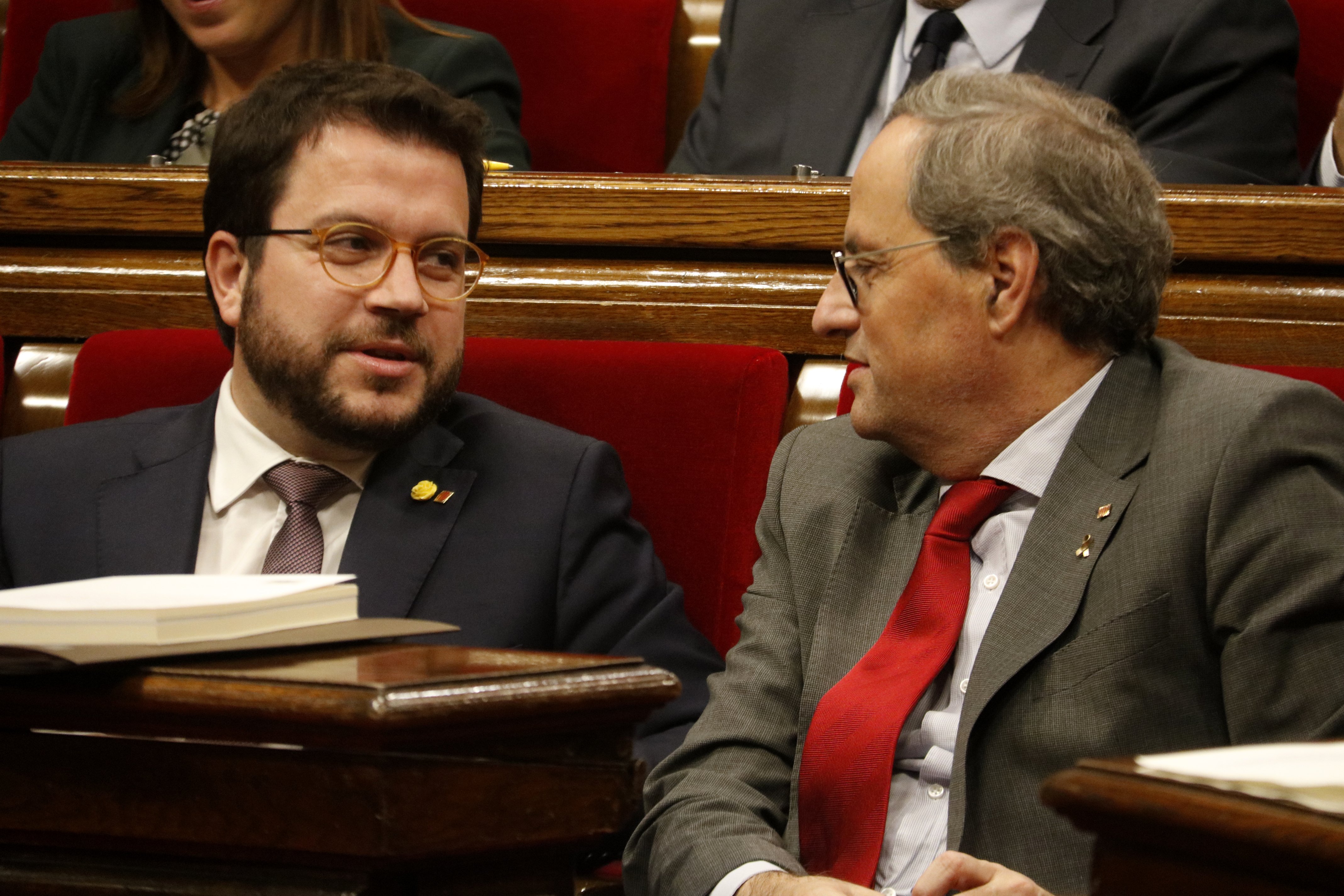Catalan president Quim Torra (JxCat) and his vice president Pere Aragonès (ERC) met this morning for less than an hour to discuss the crisis that had opened up in Catalonia's coalition government following the accord between ERC and the Socialists for the investiture of Pedro Sánchez as new Spanish PM. Sources close to the summit meeting say that president Torra told Aragonès that "the ERC-PSOE accord does not have his approval, nor does he accept it as such", but rather, he regards it as an alliance between parties. The ERC deputy leader, in turn, proposed to Torra that they face the issue together and jointly stand up for the right to self-determination in the future table of negotiation between governments that ERC has agreed with Sánchez's Socialists.
The meeting, which was called on the last day of the year after strongly-worded statements to the press by JxCat attacking its government partner, lasted half an hour. One of the main conclusions was that if the meeting between governments takes place, the content to be addressed will be determined by the Catalan executive as a whole.
The two men arrived at the improvised summit with opposing objectives. President Torra wanted to make it clear to his deputy that any future pact between Spanish and Catalan governments would have to end with a vote for self-determination and that the ERC party was not able to negotiate on behalf of the Catalan government - reminding Aragonès that they govern in coalition. For his part, the vice president went into further detail on the progress made in the negotiations with the PSOE. It was at this point that he proposed a united front at the future negotiating table between governments in order to defend self-determination, as stated in the Catalan government motion passed on October 22nd last year in reaction to the Supreme Court's verdicts on the pro-independence leaders.
Also, the ERC deputy leader - who will most likely be ERC's future candidate for the Catalan presidency - stressed the importance of the popular vote by Catalans provided for in the agreement with the PSOE, so that Catalans will approve - or reject - the result of the bilateral talks. In this regard, Torra clarified to Aragonès that he "would not budge" from an insistence on the right to self-determination, an end to the Spanish state's repression and an amnesty for those facing legal action, and said that "negotiations must allow for a clear vote on independence."
Sources close to Torra did not hide the president's irritation. He believes, they said, that ERC has not been loyal, and in fact, JxCat leader in the Spanish Congress, Laura Borràs, said as much on Tuesday. ERC rejects the allegations, saying that one of the aspects they had insisted on most in negotiations with the Socialists was that Torra had to be recognized as an interlocutor. They also point out that at all times they have argued that it is the Catalan president who needs to sit down and lead a dialogue with the Spanish state.

